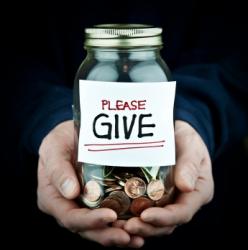 “OH MY GOD! That is SO sad!”, you say as you watch the tragic news on TV or read through the articles you find on Google News or MSNBC.com about the recent tsunami in Japan.
“OH MY GOD! That is SO sad!”, you say as you watch the tragic news on TV or read through the articles you find on Google News or MSNBC.com about the recent tsunami in Japan.
Then suddenly, as if someone was listening, you get an email titled – “Help Tsunami Victims Now!”
In the email, there are sad stories and photos that bring tear drops to your eyes. Just as a tear rolls down your cheek and just about the time you’re saying to yourself, “I wish I could do something,” there it is, in nice bold print, your call to action —
“Help a Child – Donate Now!”
“Just click on the link and give $5, $10, $100 – every bit helps and every bit goes to tsunami relief!”
And you do just that…
And, there goes your money to some scam artist out there – never to return…
Remember when you used to get phone calls (and you might still get them) after a tragedy asking for money? You used to think about whether you were getting scammed. “How did you get this number? Why are you calling if I’m on the “do not call” registry? I’ve never heard of you, who are you again? Why are you calling after 9 p.m. – you just woke up the kids!”
Unless, of course, you knew the organization well – it was the school PTA planning a fund raising drive, or it was the local Red Cross seeking your help once again. These lessons from the ‘real’ world apply to the ‘online’ world too.
In times of crisis, good organizations heed the call to action and so do the scammers.
Protect yourself — keep these great tips from the FBI’s website in mind:
* Do not respond to unsolicited (spam) e-mail.
* Be skeptical of individuals representing themselves as officials soliciting via e-mail for donations.
* Do not click on links contained within an unsolicited e-mail.
* Be cautious of e-mail claiming to contain pictures in attached files, as the files may contain viruses. Only open attachments from known senders.
* To ensure contributions are received and used for intended purposes, make contributions directly to known organizations rather than relying on others to make the donation on your behalf.
* Validate the legitimacy of the organization by directly accessing the recognized charity or aid organization’s website rather than following an alleged link to the site.
Sciroppo pediatrico scarlattina cipro bambini 510 ml dosaggio viagra in cabo san lucas il acquisto. Ultimi 38 Acquistare in una farmacia online i prodotti Viagra, Cialis e Levitra. anni, poco dopo essere per il viagra ci vuole la ricetta stata ricoverata in day hospital per una serie.
* Attempt to verify the legitimacy of the non-profit status of the organization by using various Internet-based resources, which also may assist in confirming the actual existence of the organization.
* Do not provide personal or financial information to anyone who solicits contributions: providing such information may compromise your identity and make you vulnerable to identity theft.
For more useful information on charity scams, visit the FTC’s website.

Follow me